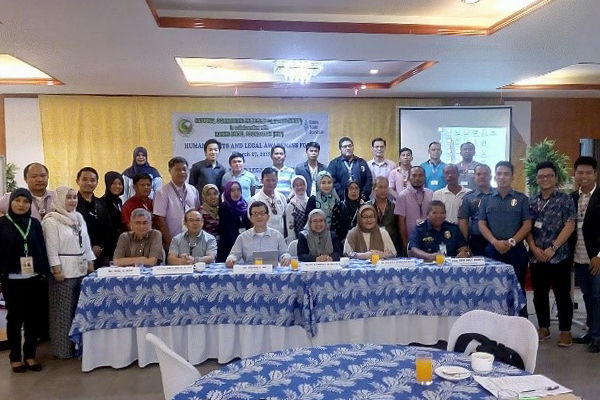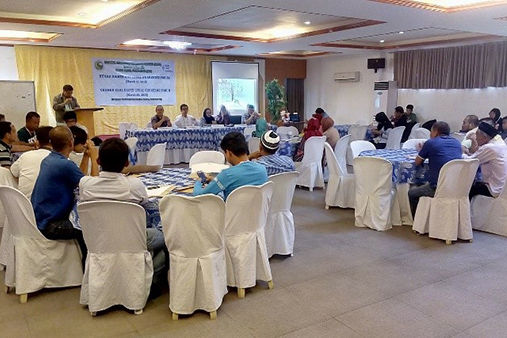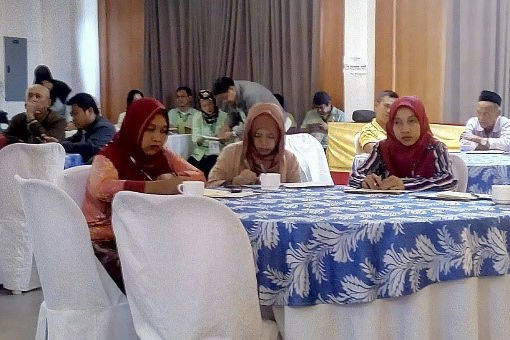NCMF consults with Moro communities regarding their civil rights, legal and other related concerns
National Commission on Muslim Filipinos conducts consultation and community-based training for community leaders to address the communities’ rights-based and legal concerns

Participants to the Forum on Muslim Communities Rights-Based, Legal and Other Concerns
HSF
The National Commission on Muslim Filipinos (NCMF), with the support of the Hanns Seidel Foundation (HSF) conducted a two-day community-based training in Cotabato City last March 27 and 28 for Muslim community leaders to address the communities’ rights-based, and legal concerns.
Participants included residents from Muslim communities in Cotabato City and the surrounding provinces of Maguindanao and Sultan Kudarat which are predominantly Muslim, or have a significant population of Muslims nearly all of which are members of the Moro collective of ethno-linguistic groups. The participants reside in areas which witnessed over 20 years of armed conflict between the national government and Islamic separatist groups, and another 20 years of underdevelopment characterized by little or no access to government services such as education, legal services, and health services.

Participants included residents from Muslim communities in Cotabato City and the surrounding provinces of Maguindanao and Sultan Kudarat
HSF
Given their history and experience, the participants stated their lack of knowledge relative to their civil rights and appreciated the activity’s conduct of case-based discussions for their appreciation of how they may respond within legal bounds to situations, whether these relate to their legal status or how the laws protect them when subjected to military or police operations.
Discussion of civil rights started with both how the respect for human rights emanated from the Islamic context and history, i.e. the “Universal Declaration of Human Rights (UDHR).” Countries such as the Philippines ratified the UDHR and its succeeding protocols, with the Philippines enshrining these same principles in its Constitutional bill of rights and subsequently passing laws, the protection of the citizens’ rights and the respect for the rule of law became obligatory. By these mechanisms, the government established operational procedures which guaranteed the universal and fair treatment of all citizens – the latter the basis for the participants’ understanding of their rights as provided for by law.

Bangsamoro Women Participants
HSF
With limited access to education and much less legal and other government services, the need for community-based “paralegal personnel” became more apparent. While these persons may not possess the formal education and training of paralegal professionals in other settings, the activity provided community leaders and other officials normally commonly approached and consulted by residents some knowledge to provide limited on advice while the services of a competent legal professional is still being sought, particularly on matters as these relate to the Philippine Code of Muslim Personal Laws, and in the conduct of police operations.
